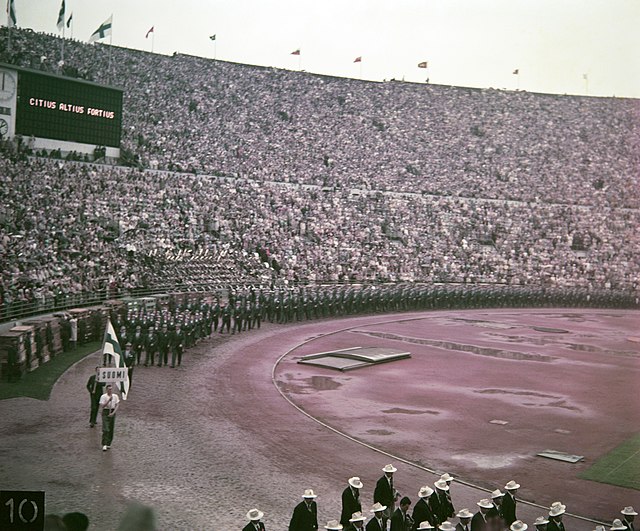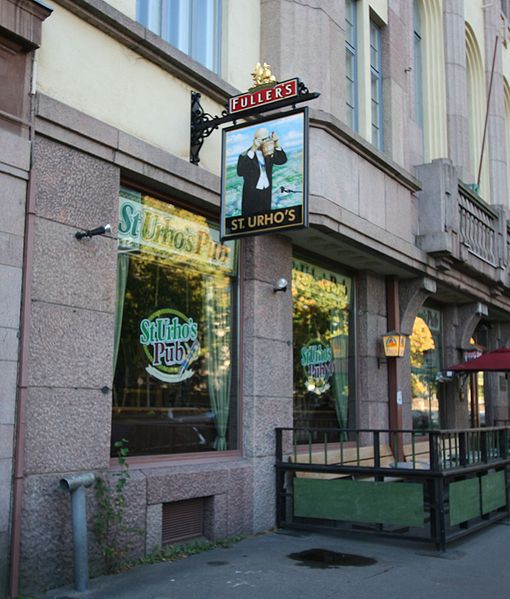The Helsinki Olympic Stadium, located in the Töölö district about 2.3 kilometres (1.4 mi) from the centre of the Finnish capital Helsinki, is the largest stadium in the country, nowadays mainly used for hosting sports events and big concerts. The stadium is best known for being the centre of activities in the 1952 Summer Olympics. During those games, it hosted athletics, equestrian show jumping, and the football finals.
Helsinki Olympic Stadium
Helsinki Olympic Stadium in 1938 soon after its completion. The stadium, first built for the 1940 Olympics, had to wait until 1952 for its intended use as an arena for the Olympic games as the war led to the cancellation of the event.
The tower of the Helsinki Olympic Stadium, a distinct landmark with a height of 72.71 metres (238.5 ft).
Host country Finland in the 1952 Summer Olympics
Töölö is the collective name for the neighbourhoods Etu-Töölö and Taka-Töölö in Helsinki, Finland. The neighbourhoods are located next to the city centre, occupying the western side of the Helsinki Peninsula.
Töölö as seen from the Helsinki Olympic Stadium tower
Bookstore on the corner of Nervanderinkatu, Töölö
St. Urho's Pub in Etu-Töölö
Töölö from air.








